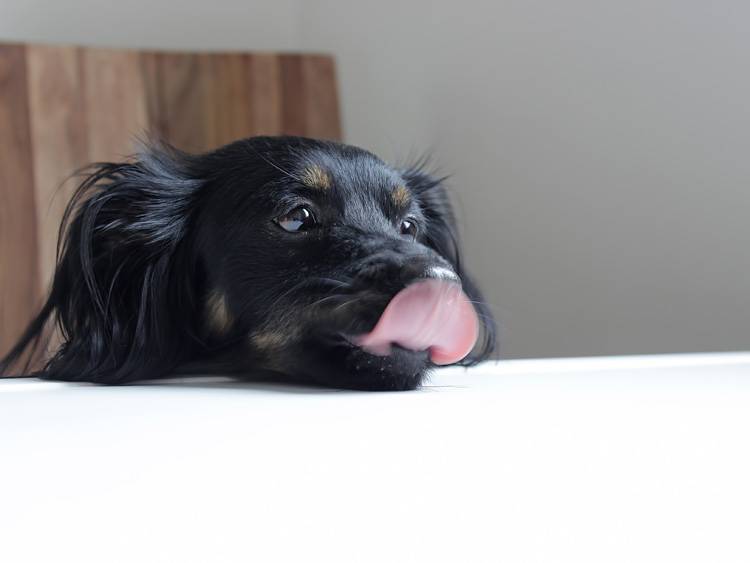Foods Toxic to Dogs
By Vesna Ban-Smedberg
Our dogs and cats share our homes, beds and, sometimes, the food off our plates. As wonderful as it is to give them freedom to enjoy their environment, you need to be aware of inappropriate things they can encounter. While exploring, they could come across things that are harmless to us, but could seriously endanger their lives if not end them.
Most of you are aware that chocolate is bad for dogs and know you shouldn’t feed them leftovers. However, did you know that dogs shouldn’t chew on a pack of gum? Or that you should never give your dog a Tylenol to ease his aches and pains? And how about the healthful snacks you enjoy, such as raisins or grapes? We take a look at common household items that are dangerous for your pets.
Xylitol
Xylitol is an artificial sweetener used in sugar-free chewing gum. It’s safe for humans, but highly toxic to dogs. It can cause low blood sugar, seizures and liver failure. If you discover your pet has ingested some, rush him to the veterinary hospital. Since different products contain different amounts of xylitol, take the remainder of the package with you to show to the veterinarian. The medical staff can provide supportive IV fluid therapy, dextrose and liver-protecting medication to help minimize the damage. Even one piece of gum with xylitol in the right concentration can endanger a dog’s life. Symptoms can show in less than an hour.
Tylenol
Acetaminophen (brand name Tylenol) is an over-the-counter medication used to treat minor pain in humans. If given without veterinary supervision, it can cause liver and kidney damage. While cats have a much harder time metabolizing acetaminophen than dogs, it can still have hazardous effects on dogs. Symptoms you should watch out for include lethargy, depression, blue or pale gums, and labored breathing. If you suspect accidental ingestion, you should contact your veterinarian immediately.
RELATED: 5 Foods You Should Never Feed Cats
Grapes
Grapes and raisins can cause kidney failure in dogs. If ingested, your dog may become quiet, experience abdominal pain and/or vomit. As the toxins take effect, urine output will diminish. Once the body stops producing urine, death can follow.
If grapes are the suspected cause, the veterinarian may induce vomiting, administer activated charcoal to prevent further absorption in the digestive tract and place your dog on intravenous fluids.
Prognosis is guarded. Even a couple of grapes can result in a deadly situation, which is why every family member should be aware of the foods that can cause problems—grapes, onions and chocolate to name just a few.
Antifreeze
Of course, it’s not just food and medication that can be dangerous to dogs. You would use caution when storing rat and snail poison, but not many are aware of how toxic and dangerous antifreeze can be.
The fluid can drip from a car’s radiator and gather on the floor. Since it’s sweet, dogs tend to like the taste. Even one lick can be sufficient to cause death. The signs are uncoordinated movement, nausea, excessive urination, seizures, fainting and eventually coma. If caught early, the veterinarian can administer an antidote and supportive treatment. Dogs who ingest a small amount and survive could develop kidney failure and die within days following the ingestion.
Be aware of what your dog has access to. Dog-proofing your house is extremely important and is the first step toward a safe, happy and long life for your pet.





